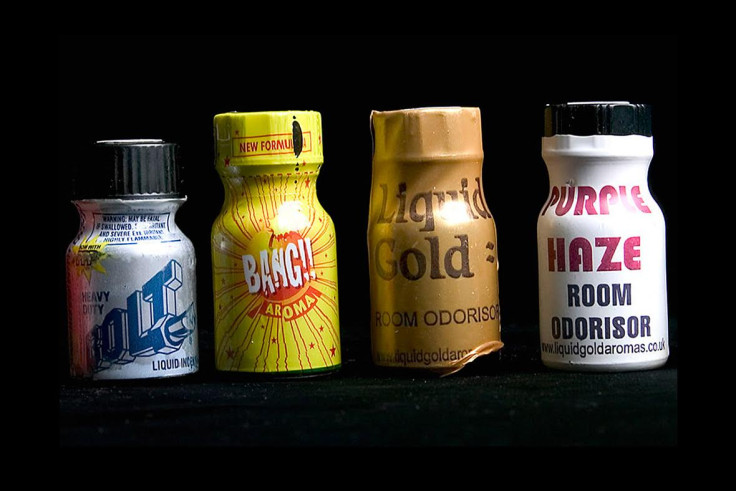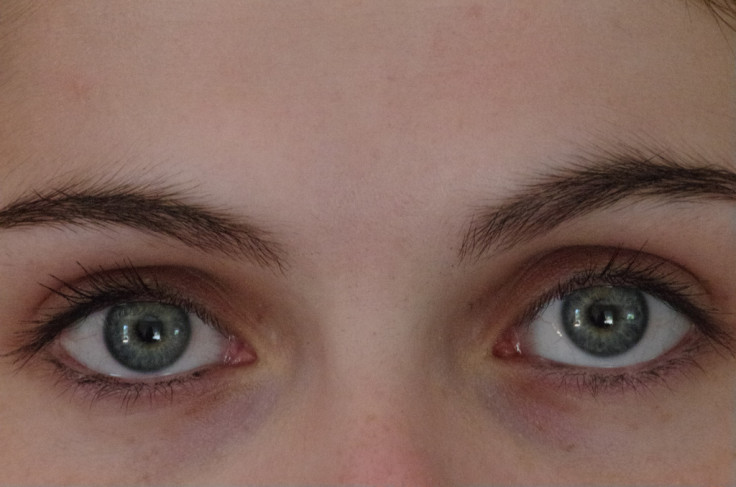Party drug poppers linked with development of eye problems including 'blind spots'
The chemical composition of poppers changed in 2006.

Scientists have established a link between the use of poppers and the development of eye problems. The new chemical composition of these drugs is thought to cause retinal damage at the back of the eye.
Poppers are typically colourless liquids with strong odours that have become popular due to their ability to cause euphoria and sexual arousal. They increasingly used as a party drug,
A little over 1% of the UK population is estimated to use poppers at least once a year. This means that they are the fourth most popular recreational drug in the country, just after cannabis, cocaine and ecstasy.
Poppers were not banned as part of the Psychoactive Substances Act 2016 alongside other "legal highs", because they do not affect the nervous system directly.
However, the study now published in the British Journal of Ophthalmologysuggests they might be more dangerous than previously thought.
In 2006 the chemical composition of poppers was changed after their main component (known as isobutyl nitrite) was reclassified as a cancer causing agent.
The main component that replaced it, isopropyl nitrite appears to be the cause of the eye problems discussed in the research.
Damaged retinas
Twelve men aged between 31 and 59 years old were admitted to Sussex Eye Hospital in Brighton, complaining from visual impairment. The most common symptom was impaired central vision, such as blurriness or blind spots (a problem known as scotoma).
The men were assessed by a retinal specialist and high-resolution photographs of structural layers of the back of the eye (retina) were taken. They revealed damage to part of the retina.
All the patients appeared to have taken poppers in the days, or even the hours, that preceded the development of the symptoms. Although stopping or reducing the use of poppers led to improvements, not all of them saw their problems entirely disappear.
"We have looked for other causes, but nothing else seems to explain the eye problems that we observed and all cases showed characteristic findings on retinal imaging. These man had all taken poppers before the onset of symptoms. When they stopped using poppers, their symptoms generally improved," lead author Rebecca Rewbury told IBTimes UK.

The scientists then analysed the chemical composition of eight different brands of poppers, finding out that six of them, associated with visual impairment, contained isopropyl nitrite. This suggests that the new chemical composition of poppers since 2006 might be associated with the eye problems they have observed.
This idea was further backed up by the fact that three of the men had used poppers for 20 years or more, only noticing symptoms on switching to a new brand.
It's possible that some individuals are more susceptible than others to the chemicals found inside poppers, and that only a few are at risk of visual impairment.
However, the fact that in this study, different users give a clear history of visual disturbance originating on changing brands indicates that the new chemicals in poppers might be responsible for harmful side-effects that didn't occur before. Clinicians should be aware of them.
"Poppers were not banned because they act on blood vessels rather than on the nervous system. Since the change in chemicals in poppers however, we have seen more people presenting with central visual disturbances linked to poppers and we want to make people aware of this risk. We also don't know what the long term effects of taking poppers might be," Rewbury concluded.
© Copyright IBTimes 2025. All rights reserved.






















